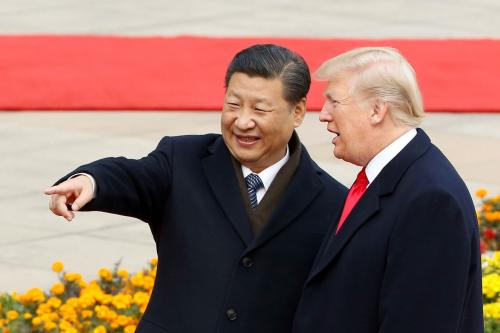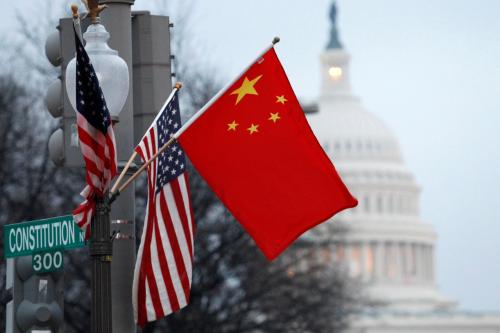

9:30 am EDT - 11:00 am EDT
Past Event
9:30 am - 11:00 am EDT
1775 Massachusetts Avenue N.W.
Washington, DC
20036
 China is widely viewed as a global powerhouse that has achieved a remarkable economic transformation with little political change. Less well known is that China’s leaders have also implemented far-reaching governance reforms designed to promote government transparency and increase public participation in official policymaking. What are the motivations behind these reforms and, more importantly, what is their impact on China’s political trajectory? This puzzle lies at the heart of a new book by Jonathan Stromseth, Edmund Malesky, and Dimitar Gueorguiev, “China’s Governance Puzzle: Enabling Transparency and Participation in a Single-Party State” (Cambridge University Press, 2017).
China is widely viewed as a global powerhouse that has achieved a remarkable economic transformation with little political change. Less well known is that China’s leaders have also implemented far-reaching governance reforms designed to promote government transparency and increase public participation in official policymaking. What are the motivations behind these reforms and, more importantly, what is their impact on China’s political trajectory? This puzzle lies at the heart of a new book by Jonathan Stromseth, Edmund Malesky, and Dimitar Gueorguiev, “China’s Governance Puzzle: Enabling Transparency and Participation in a Single-Party State” (Cambridge University Press, 2017).
On March 31, the Center for East Asia Policy Studies and The Asia Foundation co-hosted the authors of this extensive new study and feature a discussion by Wang Xixin. This expert panel discussed the book’s findings and their implications for China’s future. Comparing across provinces and over time, the authors argue the reforms are resulting in lower corruption and enhanced legal compliance, but these outcomes also depend on a broader societal ecosystem that includes an active media and robust civil society.
9:30 am - 9:40 am

9:40 am - 11:00 am
Moderator


Chinasa T. Okolo
February 12, 2025

Yun Sun
February 6, 2025

Ryan Hass, Jude Blanchette
January 7, 2025